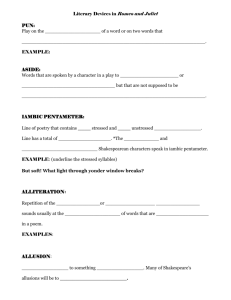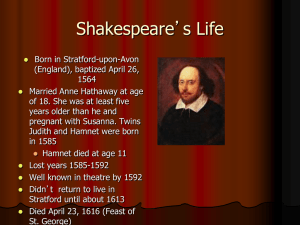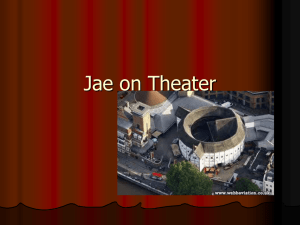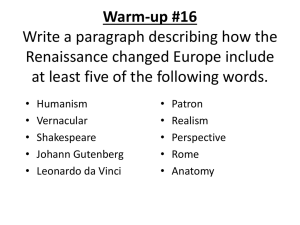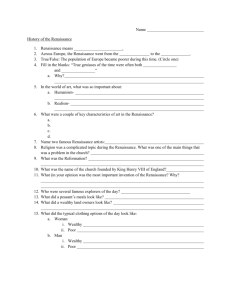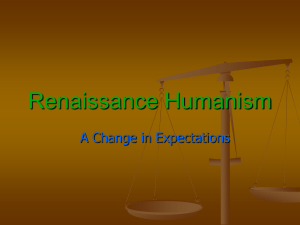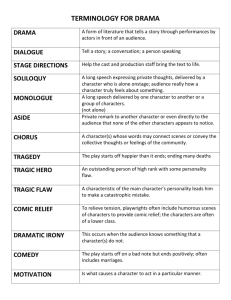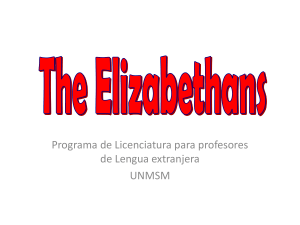Who is Shakespeare
advertisement
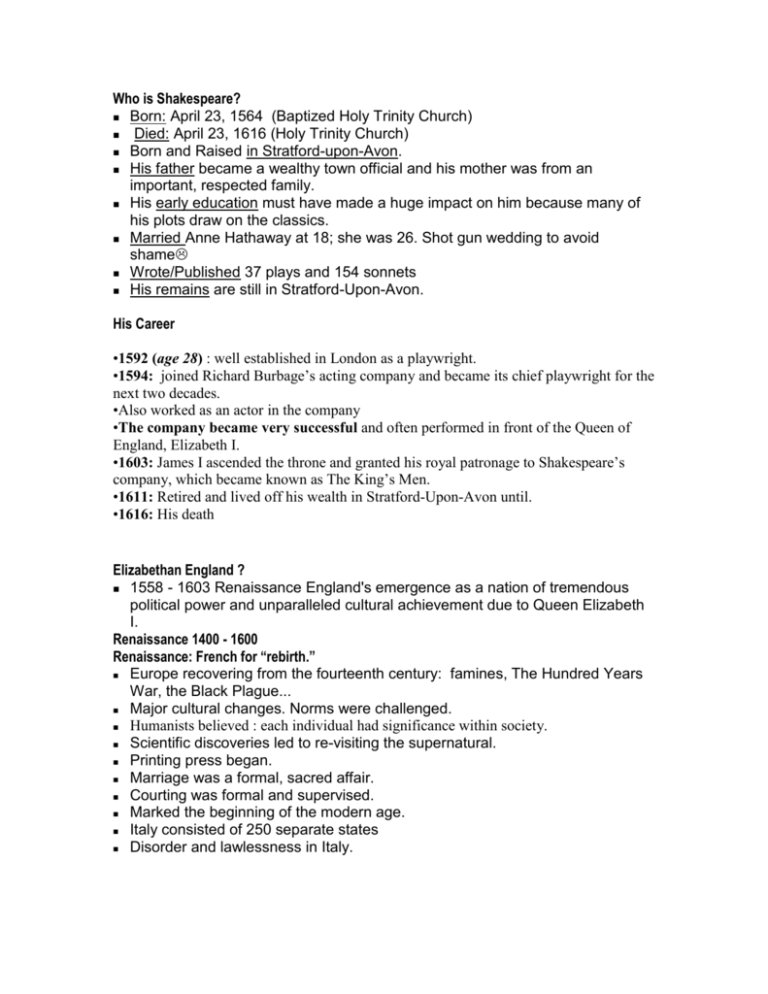
Who is Shakespeare? Born: April 23, 1564 (Baptized Holy Trinity Church) Died: April 23, 1616 (Holy Trinity Church) Born and Raised in Stratford-upon-Avon. His father became a wealthy town official and his mother was from an important, respected family. His early education must have made a huge impact on him because many of his plots draw on the classics. Married Anne Hathaway at 18; she was 26. Shot gun wedding to avoid shame Wrote/Published 37 plays and 154 sonnets His remains are still in Stratford-Upon-Avon. His Career •1592 (age 28) : well established in London as a playwright. •1594: joined Richard Burbage’s acting company and became its chief playwright for the next two decades. •Also worked as an actor in the company •The company became very successful and often performed in front of the Queen of England, Elizabeth I. •1603: James I ascended the throne and granted his royal patronage to Shakespeare’s company, which became known as The King’s Men. •1611: Retired and lived off his wealth in Stratford-Upon-Avon until. •1616: His death Elizabethan England ? 1558 - 1603 Renaissance England's emergence as a nation of tremendous political power and unparalleled cultural achievement due to Queen Elizabeth I. Renaissance 1400 - 1600 Renaissance: French for “rebirth.” Europe recovering from the fourteenth century: famines, The Hundred Years War, the Black Plague... Major cultural changes. Norms were challenged. Humanists believed : each individual had significance within society. Scientific discoveries led to re-visiting the supernatural. Printing press began. Marriage was a formal, sacred affair. Courting was formal and supervised. Marked the beginning of the modern age. Italy consisted of 250 separate states Disorder and lawlessness in Italy. Men were Men; Women Were : Property of fathers. Offered with dowries to families of men of whom Dad approved. Married to older, more economically settled men. Expected to be faithful to fathers and husbands. Men were expected to become educated, cultured, established and respected in society then married. Not permitted in the theatre unless supervised by a man. Never to perform! The Globe Theatre Favoured by Queen Elizabeth and King James Wrote in prose and verse Appealed to educated and uneducated audiences Plays were not the norm: ties to humanism Smart business man Why was/is Shakespeare so Popular? Favoured by Queen Elizabeth and King James Wrote in prose and verse Appealed to educated and uneducated audiences Plays were not the norm: ties to humanism Smart business man What about “Romeo and Juliet”? First performed between 1594 and 1595 Setting: Renaissance Italy (Verona and Mantua) Genre: Tragedy Protagonists: Romeo and Juliet Antagonists: The feuding Montagues and Capulets, Tybalt and fate. Theme: Addresses the consequences of immature blind passion, hatred and prejudice. Renaissance Italy Lawless/Run by families with power. Issues often dealt with through violence. Major cultural changes – questioning of the organization of power – humanism was evolving. Shakespeare’s Writing: Iambic pentameter is meter that Shakespeare nearly always used when writing in verse. Most of his plays were written in iambic pentameter, except for lowerclass characters who spoke in prose. Iambic Pentameter has: Ten syllables in each line Five pairs of alternating unstressed and stressed syllables The Sonnet The Shakespearean sonnet has three quatrains followed by a couplet. Scheme: abab cdcd efef gg. Content is connected to form: Each stanza introduces a separate idea, extending, playing off, or arguing with what went before, the turn often coming between the final quatrain and the couplet.
